World Cities Day: Building Climate Resilient Cities with Digital Transformation
International Telecommunication Union (ITU), Geneva Cities Hub
Session 109
To celebrate the World Cities Day 2021 and as part of the WSIS TalkX, ITU and Geneva Cities Hub are organizing a webinar dedicated to supporting cities to use digital transformation to improve adaptation actions and achieve urban resilience. For example, the Internet of Things are enabling cities to collect climate data for better monitoring of the climate and response to different hazardous situations. Digital twins are powerful assets that cities are using to carry out high-precision simulations on climate events and formulate adaptation actions accordingly. The objective of this webinar is to raise awareness on the significant role that digital transformation can play for enhancing climate adaptation actions and urban resilience. The webinar will look at specific use cases of how digital technologies, including AI, IoTs, digital twins, are helping cities to become more climate resilient and to implement ambitious climate targets such as the New Urban Agenda, the Paris Agreement, and the Sustainable Development Goals.
PROGRAMME
14:00 – 14:05 Opening Remarks - Malcolm Johnson, Deputy Secretary-General, ITU
14:05 – 14:50 Session 1: Panel Discussion on the role of digital transformation in building climate resilient cities
Moderator: Kamelia Kemileva, Director, Geneva Cities Hub
Speakers:
· Okan Geray, Strategic Planning Advisor, Digital Dubai
· Cristina Martinez, Deputy Head for Smart technologies for communities, European Commission
· Hee Dae Kim, Director General, Digital Transformation Agency, Daegu Technopark, Korea (Republic of)
· Yasunori Mochizuki, NEC fellow, NEC Corporation
Questions & Answers
14.50-15:25 Session 2: Panel Discussion on implementing digital transformation in cities for climate actions
Moderator: Robert Lewis-Lettington, Chief of Section | Land, Housing and Shelter, UN-Habitat
Speakers:
· Cristina Bueti, ITU Focal Point on Smart Sustainable Cities
· Safder Nazir, SVP Digital Industries, Huawei Middle East, Huawei Technologies
· Alireza Yari,Head of Information Technology Research Faculty, ICT Research Institute, Tehran,
Iran
· Kari Eik, Secretary General, Organisation for International Economic Relations (OiER)
15:25 – 15:30 Closing remarks - Nasser Al Marzouqi, Chairman of the United for Smart Sustainable Cities Initiative (U4SSC)
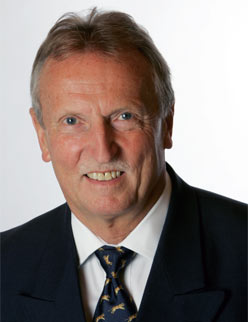
Mr. Malcolm Johnson, Deputy Secretary-General of ITU will deliver opening remarks.
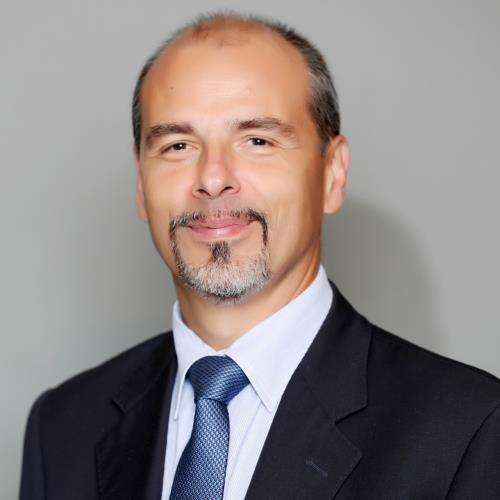
Dr. Okan Geray has more than 20 years of experience in management consulting in various industries. He has consulted for several organizations in Netherlands, France, Italy, South Africa, Turkey and Dubai. He has worked in A.T. Kearney global management consulting firm for 6 years and was a member of global Telecommunications and E-business core team before he joined Dubai Government in 2002. He has worked in Dubai eGovernment, Dubai Smart Government, Smart Dubai Office and more recently in Dubai Digital Authority after its establishment. His responsibilities include Strategic Planning, Strategic Performance and Impact Management, and Policy Making. He has Co-Chaired Enhancing Innovation and Participation Working Group in United for Smart Sustainable Cities (U4SSC) joint global initiative by ITU and UNECE by addressing Smart Governance, Smart Economy and Smart People aspects in smart cities. He has been designated as the Leader for “Guidelines on strategies for circular cities” and also “City Science Application Framework” deliverables during the second phase of U4SSC initiative. He is also a Co-Rapporteur for ITU Study Group 20 Question 7 regarding “Evaluation and Assessment of Smart Sustainable Cities and Communities”. He holds double major B. S. degrees in Industrial and Computer Engineering, an M.S. degree in Electrical Engineering and a Ph. D. degree in Systems and Control Engineering from University of Massachusetts in USA.

Cristina Martinez studied Science Philosophy, Communication (Major) and has an MSc in Telematics (Cum Laude) from the Université Libre de Bruxelles.
She started her career in the United Nations Office headquarters working for an IT track and trace software project for Africa, Asia and Latin-America. She then joined the Andersen Consulting company in 1998 to work for the eCommerce group of the Technology department as a solutions engineer.
She became a member of the staff of the European Commission in 2002 first, as communication officer, then as a senior administrator for research in the 'Enterprise Networking' Unit of the Information Society Directorate-General where she lead the 'Enterprise Interoperability' area.
In 2013, Cristina became Head of Sector and then Deputy Head of Unit for various departments: the 'Knowledge-Management' unit, the 'eInfrastructure and Open Science Cloud' unit and the ‘Smart Mobility and Living’ unit. Since January this year, she is responsible for the Smart Cities topic.
Cristina Martinez is married and has three children.


Yasunori Mochizuki is NEC Fellow at NEC Corporation since April 2019 and is focused on Digital Transformation and IoT eco-systems strategy for Smart Cities. Previously, he was Senior Vice President responsible for NEC’s company-wide technology strategy including R&D roadmap and open innovations. Yasunori Mochizuki is also active in global networks (i.e. NPO) as well as policy proposal activities related to smart cities. He is Fellow at World Economic Forum’s Center for the Fourth Industrial Revolution, where he works for multi-stakeholder collaboration network on technology governance called G20 Global Smart City Alliance that was launched in October, 2019, and also is a Board-of-Directors member of FIWARE Foundation, an open source ecosystem for smart cities and digital economy, since March 2017 representing NEC. As for policy recommendation for smart city and/or digital economy via private-sector collaboration, he has been working as committee member of Council on Competitiveness-Nippon (COCN), Keidanren, Business-at-OECD (BIAC) and as the Chair for Technology Strategy Committee of Japan Electronics and Information Technology Industries Association (JEITA).
Yasunori Mochizuki has 30+ years of career as a research scientist and then as a general manager of research departments of NEC and his technical expertise covers a broad area including AI-oriented computer science, ICT systems, integrated devices and solid-state physics. As a collaboration with academia, he is a Research Advisor to Institute of Industrial Science, University of Tokyo. Yasunori Mochizuki received his PhD in Electronics Engineering from University of Tokyo in 1987.
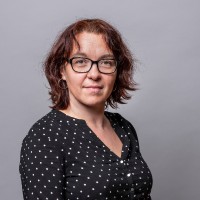
Kamelia, holding an MBA, has in-depth experience in executive administration of non-profit organisations. She is also a lawyer, specialized in Swiss law relevant to international organisations and international public law, including expertise on the United Nations intergovernmental bodies.
Before joining the Geneva Cities Hub, Kamelia was namely Executive Manager at the Geneva Academy. Before this she worked as Special Assistant to the President of the UN Human Rights Council for three years. She was also a Visiting Programme Director at Wilton Park. Previously to that, she also worked at the Swiss Ministry of Foreign Affairs and the Permanent Mission of Switzerland to the UN Office at Geneva. In 2002, she was part of the Office of the UN High Commissioner for Human Rights in New York.
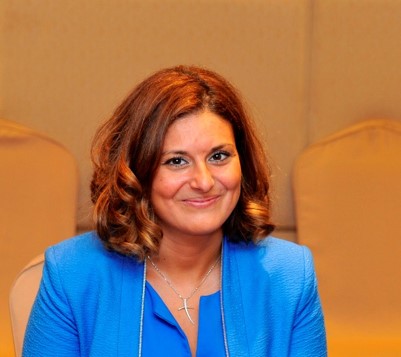
Cristina Bueti is the ITU Focal Point on Environment and Smart Sustainable Cities. She is also the Counsellor of ITU-T Study Group 20 “Internet of things (IoT) and smart cities and communities (SC&C)” at the International Telecommunication Union (ITU). She also serves as TSB/ITU focal point for Latin America.
Cristina Bueti graduated from the Faculty of Political Science, Law and International Cooperation and Development of the University of Florence, where she completed postgraduate studies in International Cooperation and Telecommunications Law in Europe. She also holds a specialization in Environmental Law with a special focus on Telecommunications.
In 2003, Ms. Bueti built on her academic credentials by completing a specialized course in peace keeping and international cooperation with special focus on telecommunications at the Faculty of Laws, University of Malta, before joining the International Telecommunication Union in Geneva in January 2004.
As part of the International Women's Day 2016, she was named as one of the twenty Geneva-based inspirational women working to protect the environment.
She has authored over 40 reports on telecommunication issues. A native Italian speaker, Cristina is also fluent in English, French and Spanish.
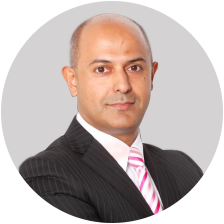
Safder heads Huawei’s Digital Industry Center of Excellence, prior to which he has held various leadership roles in global ‘blue chip’ companies. With over 25 years of experience across the world in industries from smart cities to telecom B2B services, Safder has enabled global companies to deliver exceptional results in new lines of business. Key to this success has been the innovative use of technology to drive business transformational outcomes.

Mr. Alireza Yari, Head of information technology research faculty, ICT Research Institute
Since 2012, he has been appointed as the head of the IT Research faculty and is responsible for directing research at the ministry of ICT of Iran in the fields of information technology infrastructure development and its applications. He has been directing researches in the field of cloud computing, big data, IoT, and artificial intelligence and currently supervising projects in the field of smart sustainable cities.
He is an associate professor at the Institute, holds a Ph.D. in System Engineering from Hokkaido, Japan, and a bachelor's and master's degree in control system engineering from the University of Tehran, Iran.
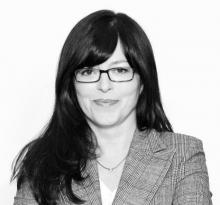
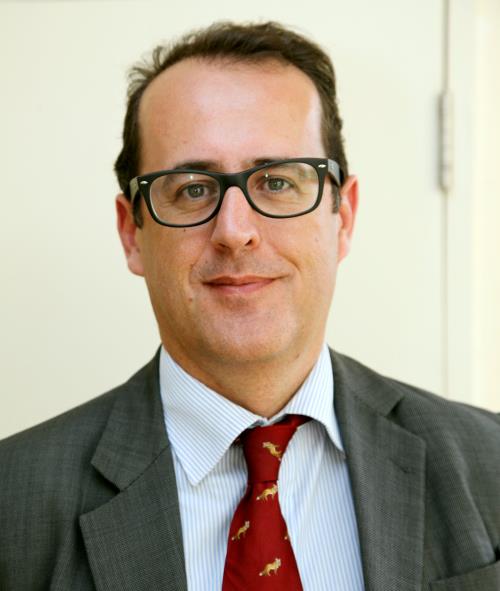
Robert Lewis-Lettington is Chief of the Land, Housing and Shelter Section at UN-Habitat. He is a lawyer by training and has worked in both public and private international law for more than twenty years. Robert’s principal areas of expertise are international institutions and processes, human rights and humanitarian law, environmental law, science and technology law and urban development. Robert is also an experienced programme and project manager having worked in most geographic regions and a large number of countries. Robert also plays the bagpipes badly
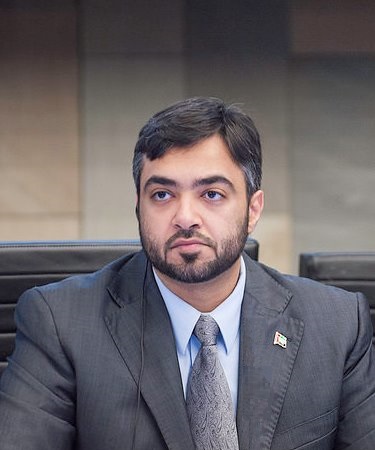
Mr. Nasser Al Marzouqi is the Chairman of the ITU-T Study Group 20 “Internet of things (IoT) and smart cities and communities (SC&C)” which provides the specialized IoT standardization platform necessary for the convergence to rest on a cohesive set of international standards. The focus of the research conducted by ITU-T Study Group 20 will be on identifying and analyzing emerging applications and global solutions for IoT and smart cities, which will contribute to improving the interoperability of various IoT-based technologies, a key factor in ensuring end-user and market acceptance of IoT solutions.
Nasser Al Marzouqi is currently working for the Telecommunication Regulatory Authority in the United Arab Emirates in the International Affairs Division. He also functions as the UAE representative to the International Telecommunication Union (ITU) and has been closely involved in the major ITU conferences and events. He received his Master’s degree in Telecommunication Engineering from Latrobe University in Australia.
The TRA in the UAE has been at the forefront of pioneering developments in the field of ICT and in providing an optimal enabling environment in which the UAE’s ICT sector can flourish. Mr. Al Marzouqi is a firm proponent of converting existing systems to high-efficiency systems, helping to bridge the digital divide and to increase global communication and the transition to smart sustainable cities.
-
 C1. The role of governments and all stakeholders in the promotion of ICTs for development
C1. The role of governments and all stakeholders in the promotion of ICTs for development
-
 C2. Information and communication infrastructure
C2. Information and communication infrastructure
-
 C3. Access to information and knowledge
C3. Access to information and knowledge
-
 C5. Building confidence and security in use of ICTs
C5. Building confidence and security in use of ICTs
-
 C7. ICT applications: benefits in all aspects of life — E-government
C7. ICT applications: benefits in all aspects of life — E-government
-
 C7. ICT applications: benefits in all aspects of life — E-environment
C7. ICT applications: benefits in all aspects of life — E-environment
-
 C7. ICT applications: benefits in all aspects of life — E-agriculture
C7. ICT applications: benefits in all aspects of life — E-agriculture
-
 C10. Ethical dimensions of the Information Society
C10. Ethical dimensions of the Information Society
-
 C11. International and regional cooperation
C11. International and regional cooperation
-
 Goal 3: Ensure healthy lives and promote well-being for all
Goal 3: Ensure healthy lives and promote well-being for all
-
 Goal 8: Promote inclusive and sustainable economic growth, employment and decent work for all
Goal 8: Promote inclusive and sustainable economic growth, employment and decent work for all
-
 Goal 9: Build resilient infrastructure, promote sustainable industrialization and foster innovation
Goal 9: Build resilient infrastructure, promote sustainable industrialization and foster innovation
-
 Goal 11: Make cities inclusive, safe, resilient and sustainable
Goal 11: Make cities inclusive, safe, resilient and sustainable
-
 Goal 13: Take urgent action to combat climate change and its impacts
Goal 13: Take urgent action to combat climate change and its impacts
-
 Goal 16: Promote just, peaceful and inclusive societies
Goal 16: Promote just, peaceful and inclusive societies
-
 Goal 17: Revitalize the global partnership for sustainable development
Goal 17: Revitalize the global partnership for sustainable development
